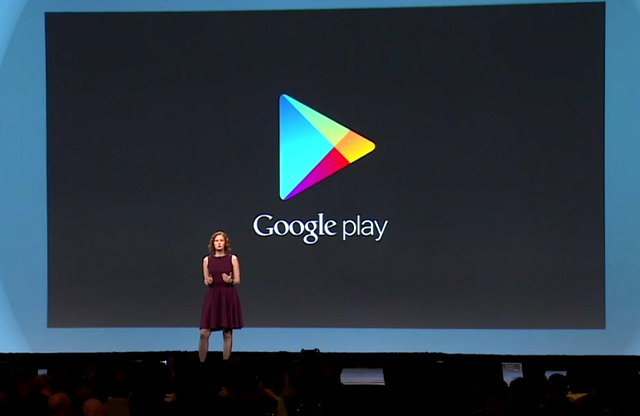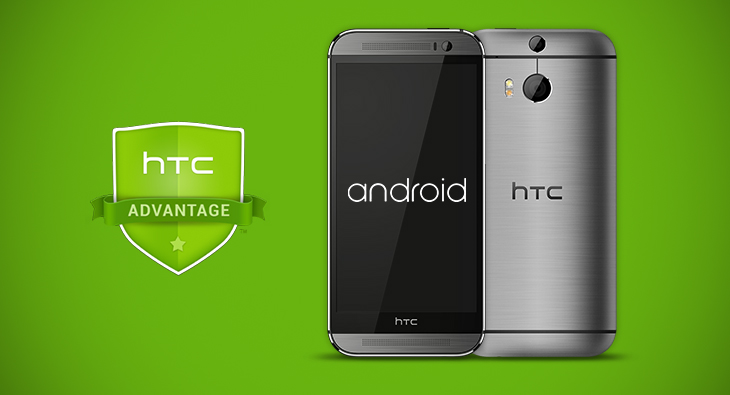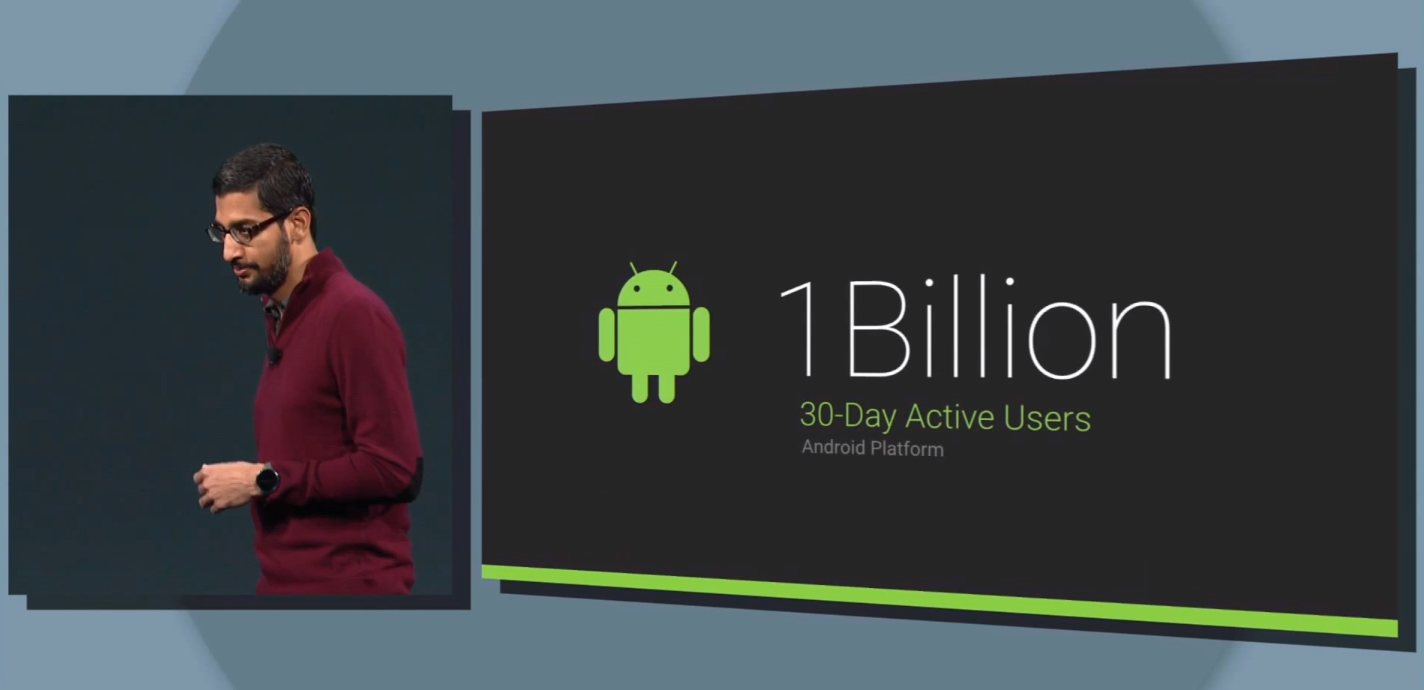
Is Android TV the answer to Google's living room prayers?
Google had lots of announcements at last week's I/O conference, though most seemed to have been overshadowed by Android Wear. However, that doesn't mean that the other things weren’t important. One of the items shown was Android TV, though it may lend as much confusion as it does clarity to Google's living room strategy.
There are a couple of reasons for that. First is that the company already has Google TV, which also runs Android, though the set-top boxes based on the platform have failed to gain much traction in the market. The other, and perhaps much more pressing issue, is Chromecast.

Plex will be available at Android TV launch
Plex is perhaps the best media server available for customers these days, though that will certainly vary by individual tastes. The server and apps are capable of running across almost any platform, and Google will apparently not provide a stumbling block for that.
The company is announcing it will be ready when Android TV launches later this year. The platform, which had been rumored for sometime, was announced this past week at the Google I/O conference.

The most popular stories on BetaNews this past week: June 22 -- 28
The battle for dominance between Microsoft and Google continued, with Microsoft offering a huge storage boost for Office 365 and OneDrive users. This was quickly trumped by Google later in the week at 1/0 2014, when the company announced unlimited storage for Google Drive for Work users. Microsoft is basking in the glory of being heralded as cooler than Apple by Joe -- and stunts like offering cashback deals to sway MacBook Air owners into switching into Surface Pro 3 certainly helps. Microsoft opened a new store on Long Island, while Google branched out into new territory with a trial run of a new domain registration service. Microsoft also ventured into new waters with its first Android smartphone, the Nokia X2.
In something of an interesting twist, Microsoft opted to use Opera Mobile as the default web browser. Opera is also returning to Linux after the surprise release of Opera 24 Developer. Linux Mint 17 "Qiana" KDE was also released. Linux also managed to hit the headlines for facilitating the hacking of Google's Nest thermstats. If this hasn’t put you off, Logitech added support to its Harmony remotes.

Android owners spend less on apps than Apple users do
Many Google fans and developers are still excited in the wake of an eventful Google I/O 2014. From a transcendent show-opener where a metaphor-heavy Rube Goldberg device crossed through the physical and digital space to more discussion on the expansion of wearable technology, there was something for everyone at this developer conference.
The US tech giant's big hitter of this year was an emphasis on improving the integration of Android apps more seamlessly into users' everyday lives. Conference attendants were also granted an unprecedented look at the figures behind Android users' buying habits in the Play Store.

How to install Android L preview on your Nexus 5, 7
At the I/O 2014 conference, Google showcased the latest version of Android, known only as L until its official launch later this year. Compared to its predecessor, KitKat, it comes with 64-bit support, design changes, the ART runtime running the show, tightened security, battery life and performance improvements, notifications tweaks, new APIs and more.
Android L may not yet be ready for prime time, but a preview version is now available for Nexus 5 and Nexus 7 (2013 Wi-Fi model), giving users the option to get comfortable with the slew of changes it introduces. Here is how you can download and install it.

HTC vows to quickly offer Android L on all One (M7), (M8) models
Taiwanese maker HTC is now, undoubtedly, at the pinnacle of timely Android upgrades. It was among the first to announce and deliver KitKat, and now it is stepping up to the plate once again by revealing its Android "L" plans.
HTC says all of its One (M7) and One (M8) smartphones will receive Android L within 90 days of getting the final bits of code from Google. That means both unlocked and mobile operator-branded versions of its two most-recent flagships; One (M7) -- as the original One is referred to by HTC now -- arrived more than a year ago, while One (M8) was launched in late-March, 2014.

Google I/O 2014 Day 1: What you need to know
Google I/O 2014 started yesterday and, thanks to a lengthy first-day keynote, the search giant has already made plenty of headlines one after another. And for good reason, as it unveiled new software, new hardware (albeit none of it was Nexus-branded) and a number of sweeping changes to its portfolio. Say what you will, but Google sure had plenty of interesting things to show without even announcing a new Nexus tablet (as we were used to in the past two years).
The amount of information from the conference is overwhelming, so here is the tl;dr version.

Google Cardboard is a real thing -- strap a smartphone to your face
Google is a cool company. Regardless of what you think about its services or products, you cannot deny the cool-factor that it has. However, can a person or company be too cool? What I mean is, can the cool actions become tiring and possibly even annoying? Remember when Fonzie jumped over a shark on Happy Days?
I'm not saying Google "jumped the shark", but today, the search-giant may have crossed the line into being a parody of itself with a new project called Cardboard. The name is quite literal -- Google wants users to fold cardboard in the shape of a face mask that will ultimately turn the user's smartphone into a makeshift virtual-reality mask. Yes, Google is asking us to strap a smartphone to our faces. Umm, cool?

Google brings the marriage of Chrome OS and Android closer
Ever since Google released its two operating systems -- the one for computers and the one for phones and tablets -- users have talked of a merger of the two. So far that hasn't happened, and at Google I/O today it still didn't. But things got a bit cozier.
The company unveiled closer integration between the two platforms, bringing phone notifications to your computer. Is your phone ringing? Your Chromebook will popup a notice telling you who it is. Got a text message? That too will appear on your notebook. In fact, Chromebooks will even notify you of low battery life on your mobile device, letting you know it's time to charge it.

PBS Kids comes to Apple TV, Android and Chromecast
Many of us grew up with PBS programming, such as Sesame Street. While that show is still around -- it seems it will last forever -- others are now popular with today's youth. But while we may remember a console TV and antenna, today kids expect things like cable and set-top boxes, even smartphones and tablets. Public television is moving on to meet these new needs.
Today PBS Kids announces an expansion of its reach, coming to Apple TV, Android and even Chromecast. Along for the ride, are many of kids' favorite shows, including that old standby, Sesame Street. Big Bird will be joined by others, though, like Daniel Tiger.

Kaspersky Lab uncovers new Android and iOS spying tools
Security company Kaspersky Lab has published a new report uncovering previously undiscovered Remote Control System (RCS) Trojans that work on both Android and iOS. It's also mapped their massive international command and control network.
The Trojans are part of the allegedly 'legal' spyware tool, RCS, also known as Galileo, developed by the Italian company, HackingTeam. Kaspersky's researchers were able to map the presence of more than 320 RCS command and control servers in over 40 countries. The majority of the servers being found in the United States, Kazakhstan, Ecuador, the United Kingdom and Canada.

Microsoft selects Opera as default browser for its Android phones
Earlier today, my colleague Wayne Williams reported that Microsoft is releasing its first Android phone. While not the first smartphone from Nokia to be powered by Google's operating system, it is the first under Microsoft's leadership. Let that sink in for a minute -- Microsoft is releasing a device powered by Linux. Has hell frozen? Are pigs flying? Surely, this is the sign of the apocalypse.
Every smartphone needs a default browser however, and the Nokia X2 is no exception. Sadly, Microsoft has not ported Internet Explorer to Android -- I would welcome that in the future though. No, it has chosen a different browser as default and it is not Chrome or Firefox, but Opera.

Microsoft launches its first Android smartphone -- the Nokia X2
At the Mobile World Congress (MWC) back in February, Nokia surprised people with a new Android-powered smartphone series. The Nokia X line consists of the X, X+ and XL, with the devices designed to fit somewhere between Nokia's low-end Ashas and high-end Windows Phones. There was speculation that once Microsoft had taken over the Finnish manufacturer's mobile business that this new line would be killed off -- keeping the focus solely on Windows Phone devices -- but that turns out not to be the case.
Today Microsoft announces the Nokia X2, which the tech giant introduces "as the newest addition to the expanding Nokia X family of affordable smartphones designed to introduce the 'next billion' people to the mobile Internet and cloud services". Like the Nokia X, the new device gives users access to both Android apps and popular Microsoft services, like Skype, Outlook.com, and OneDrive.

Apple, Google and the kings of 'abandonware'
"Abandonware". It’s the scourge of the industry. Every time a vendor abandons a software product, a puppy dies. Or an orphan. Or a Java developer.
Regardless, nobody likes to see their favorite app/game/platform get left behind. It’s the worst kind of techie betrayal. You spend days, weeks or even months mastering a product only to have the virtual rug pulled out from under you.

The most popular stories on BetaNews this past week: June 15 -- 21
This is the week of the Surface Pro 3. Brian had already attended the launch event earlier in the month, and has provided an essential list of hardware and software purchasers need to grab for the best all round experience -- he even goes as far as suggesting that it's better than a MacBook Air. Even before launch there was an update available for the tablet-cum-laptop, and there was also news that the Intel Core i3 and i7 models would be shipping earlier than previously expected. But not all of the products we looked at this week were quite so "every day". There was the wifi doorbell complete with camera, and also the prospect of charging your phone wirelessly with your pants -- yes you did read that correctly.
The Windows Phone market is dominated by Nokia, but a new batch of handsets has been unveiled by Indian manufacturer Micromax. If Android is your mobile OS of choice, you may be thinking about venturing into the rooted world. This week a new tool was released that makes the process as quick and painless as possible, opening up a whole new breed of apps and options. Joe decided to take a walk on the wild side and adopt the Nokia Lumia Icon as his phone of choice. In the Android arena, a new contender entered -- the Amazon Fire Phone. Will a kill switch be added? Microsoft and Google have agreed to add it to their mobile operating systems.
